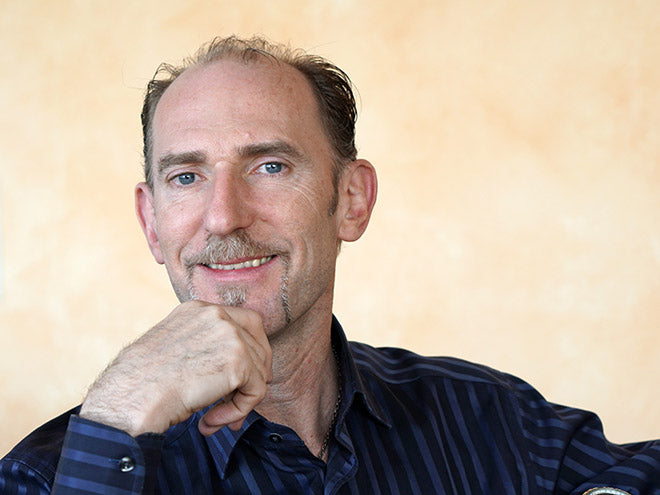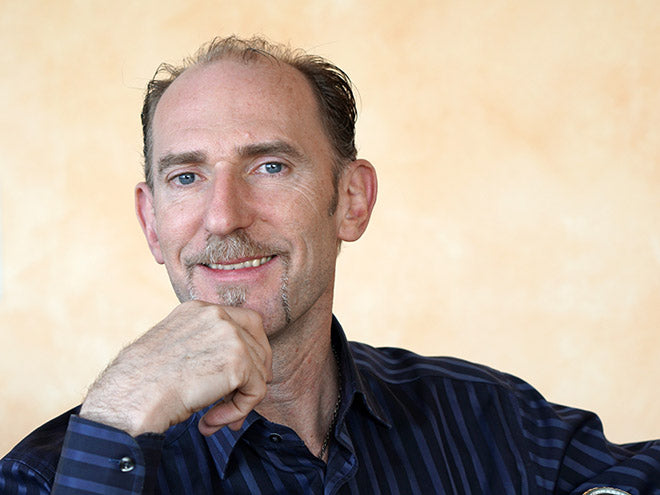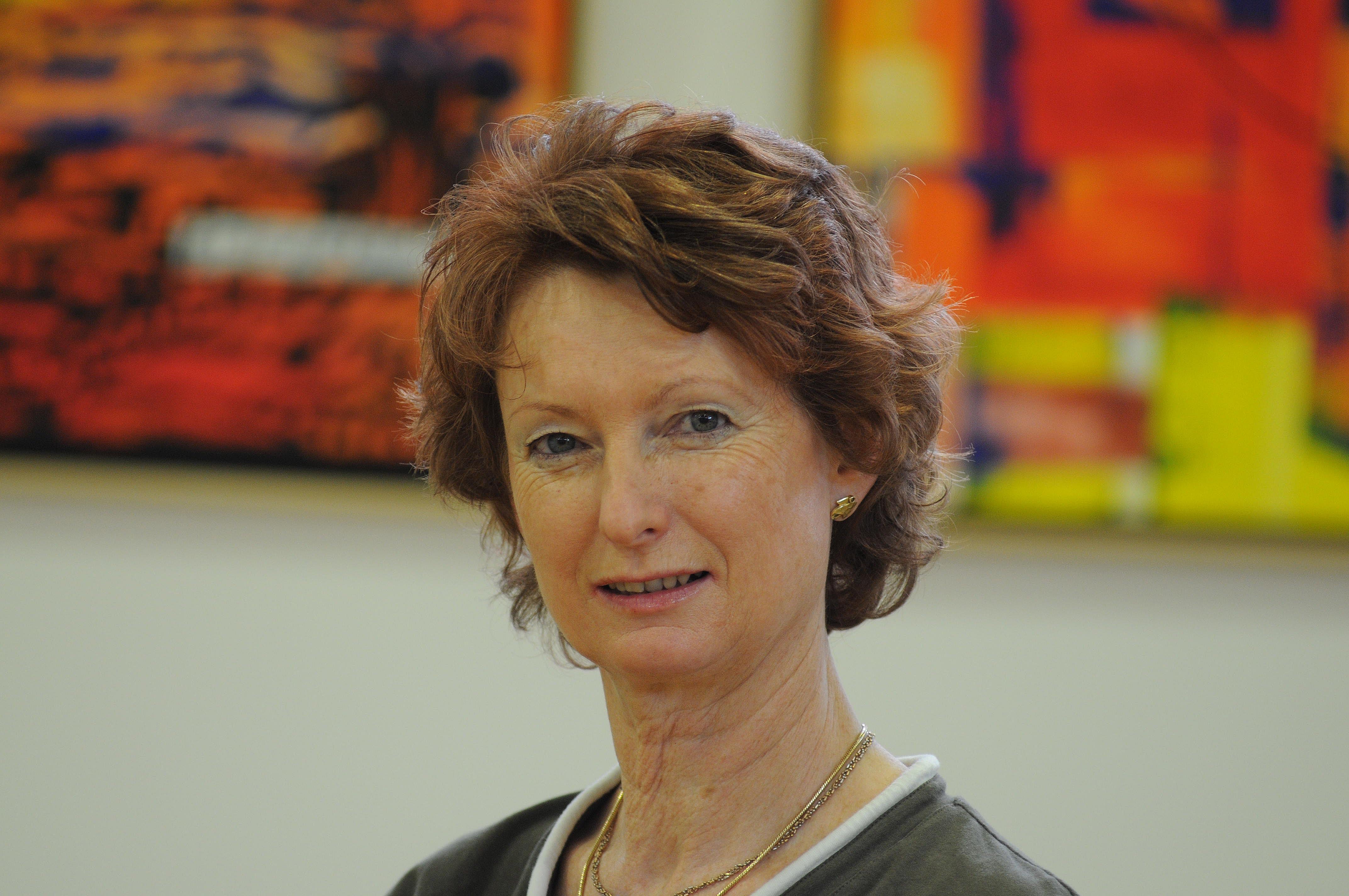
"If you understand your fears, they will disappear on their own!"
"If you understand your fears, they will disappear on their own!"
Interview with the success coach and qualified teacher Andreas Winter about his new book "What your fear wants to tell you".
"There are so many fears - of illness, of unemployment, of death, of strangers, of spiders and so on - but their real cause usually lies in early childhood experiences that we no longer consciously remember, but whose threatening nature we have generalized and transferred to completely different things. Anyone who understands the cause and origin of their fear through careful analysis - and I provide the right questions for this - will find that it dissolves in an instant."
Depth psychologist Andreas Winter, author of the book “What your fear wants to tell you” and an audio coaching program of the same name on CD, is convinced that anyone who frees themselves from their fears will also get rid of their health, professional or private problems.
Given the current refugee situation and real terrorist threats, fear is becoming the focus of political discussions. As an educator and psychological counselor, what motivated you to write a guide on the subject of fear?
Winter : Fear is an age-old issue that has always paralyzed people and determined their behavior - even though fear is so easy to see through and resolve. In view of the current fear-mongering in all media and on all channels, it is high time to do away with this bogeyman of humanity. After all, we are all affected when people live in fear but do not know how to get rid of it. Fear is the breeding ground for many political decisions and laws. People are afraid of unemployment, of being attacked, of illness, of poverty, loneliness and punishment. Since time immemorial, fear has been abused as a political and religious tool of power - just think of the indulgence trade, the violent collection of taxes, the Inquisition or bloodletting. It is no different today, in fact it is probably even more extreme. My decision to write this book is the result of my daily work with people who suffer from the effects of anxiety and the observation that without anxiety, almost all problems, whether health-related, professional, financial or partnership-family-related, can suddenly be solved.
It would probably not be an exaggeration to assume that your therapeutic approach also has an educational and political purpose. What do you understand by the "fear industry" and what can be done to combat it?
Winter : When you know that fear is such an unbearable feeling that everyone wants to be free of it – no matter what the cost – it is easy to conclude that fear is a lucrative business. During pregnancy, the embryo is instilled with fear via the umbilical cord – by making the mother afraid: Do the blood groups match? Is the baby developing as expected? Are the heartbeats OK? Et cetera, et cetera. Then it continues after the birth: Is the baby drinking enough? Is it sleeping through the night? Is it learning to sit, walk and talk (in time)? At school they are told: Be good and hard-working, otherwise you won’t get a job; and later in life they believe that without an ideal figure, status symbols and branded goods they are unlovable. From the cradle to the grave we are made to fear just because we want to be free of it at all costs. Almost everyone believes that fear is natural, insurmountable or innate. Especially nowadays, when our freedom is increasingly restricted, for example through surveillance, controls, restrictions and apparent antidotes to fear such as armaments, medicine or insurance, you have to search thoroughly if you want to find someone who is truly free of fear. But fear is learned ! It is generated by experiencing seemingly insurmountable danger and shakes or destroys a person's self-confidence. However, those who do not trust themselves become unpredictable, unreliable and also susceptible to manipulation and illness. These connections seem complex, but are easy to understand if you understand the origins and effects of fear - and then it disappears all by itself.
Almost everyone feels fear of certain people, things or situations - over seven million Germans even suffer from a diagnosed specific phobia. What is the common denominator of all those affected, and what causes a pathological symptom?
Winter : There are three common denominators: Firstly, phobics do not know what they are actually afraid of. Neither a spider, nor an elevator, nor the dentist are actually dangerous. The person affected believes they are afraid of these things, but there is something completely different behind it. Fear triggers such as those mentioned are a memory of danger suffered and thus a symbol of a trauma that occurred long ago. Secondly, those affected do not know the root cause of their fear. But if you can name the concrete cause, you are no longer afraid of generalized symbols. I write about this in my book: "Imagine you are afraid of a wasp, or more precisely: of its sting. If the wasp actually stings you, you feel pain and maybe you are angry, but you are not afraid! Why not? Because you can now assess the actual danger." And that brings us to the third point: all fears can be reduced to a single factor - the "fear of losing control." Fear is actually always about the same thing: you want to control what you experience. If what you experience does not match what your brain is prepared for, stress hormones are released - as an emergency brake, so to speak - which often creates a feeling of fear. A pathological symptom arises when fear becomes chronic, i.e. when the stress hormones are never properly broken down or are constantly released. Their blocking function then damages cells and weakens the body's defenses and ability to regenerate. This makes people susceptible to illness and can even suffer from organ failure such as type II diabetes or a heart attack. The chronic release of stress hormones also plays a crucial role in obesity, osteoporosis, cancer or allergies. Behaviours such as smoking, drug use, gambling addiction, jealousy, stinginess or procrastination are caused by fear. You can free yourself from all of these problems if you manage to get rid of your fear.
In your depth psychology approach, you define fear as an “unreflective reaction in anticipation of a threat.” Where does this reaction come from and what function does it fulfill in the “algorithm of the psyche”?
Winter : This reaction occurs because fear is not processed rationally, but by the areas of the brain responsible for emotions. However, emotions, as the name suggests, control the body and its behavior. So we act completely irrationally in the face of a feared danger, such as an insect bite, a stranger or an elevator, because we learned that they were threatening when we were not yet able to think rationally. The cause of this reaction lies in the psyche's desire to avoid stress - but this usually only works in the very short term. If I don't get into the elevator because I'm so afraid, I have to climb the stairs. Depending on the number of floors, this can also cause stress. If I drop my laundry basket in the basement when I see a spider, it can watch me as I collect the laundry in annoyance. And if I blindly flee across the street when I see a large dog, it can be much more dangerous than if I had simply stood still. As soon as a person gets the idea that fear has worse consequences than what it is supposed to protect against, the brain automatically switches to more sustainable strategies in its anti-stress efforts. So you don't even need discipline or training to get rid of your fear, just a thorough analysis of your personal "fear cost-benefit calculation". The brain does the rest on its own.
Many of your clients have been freed from their fear after just one conversation. What do those affected have to do to achieve this and live a life without fear?
Winter : First of all, you need a certain amount of suffering, because fear is actually supposed to protect the person affected. They believe they are getting this protection and consideration without paying a price. By showing consideration for phobics, we are actually rewarding them. We are maintaining and strengthening their symptoms. People with fear, reservations and anxieties think they are not responsible for their behavior, but the opposite is the case! Nobody likes to be manipulated by the fear of others; people with anxiety symptoms burden their fellow human beings and lose their respect. Anyone who is fully aware of this responsibility can begin to understand their fear as a child's protective concept and not as an illness, coincidence, hereditary factor or bad luck. This means that nothing stands in the way of analyzing the causes and the subsequent resolution of the fear. Both are achieved by honestly answering three simple but profound questions, which I explain in detail in my book. This turns an emotional, subconscious construct into a completely rational and consciously controllable concept. You no longer react, you decide...
In your opinion, fears come from the emotional repertoire of children and are not really part of the life of a reflective, confident adult. Why then are anxiety disorders so common, especially among adults, and why do children appear to be fairly unbiased towards most people, things and situations?
Winter : As I said, fear must first be learned and then transferred to other things, in other words generalized. A child is not afraid of unemployment, the Taliban or a stock market crash because it has no idea what they mean. It is only when our experiences bring more and more pieces of the puzzle together that fear catches up with us more and more often. Fear turns us into "grown children" - without fear, on the other hand, people may still be young and immature, but they are probably the most powerful beings on earth. That is probably why politicians do not want people to be free of fear, because anyone who makes their own responsible decisions can no longer be controlled with pressure. It is only when we have reached the end of our lives that we sometimes lose our learned fear and tell our relatives, politicians and doctors our uncomfortable opinion - just like we did as children.
Great philosophers such as Kierkegaard and Heidegger interpreted fear as a mood that throws people back on themselves and their freedom. What do you think is the connection between human dignity and fear?
Winter : I've never thought about that. I'm an adult educator. I coach people so that they don't get on their own and other people's nerves with their fear, illness and inability. However, when I philosophize about it, I always notice that human dignity is incompatible with fear. In my opinion, life is by no means a kind of prelude to death, as Kierkegaard or Heidegger understand it, but the only way to realize and materialize one's intentions. But fear blocks us, it prevents us from developing. A life of fear is unworthy of man! Just look at the devout followers of authoritarian religions: they spend their whole lives trying to live in a way that pleases God, suppressing their needs for love and development so as not to get into trouble with their Creator, just so that they might have a good time after death. And to do so, they forego joy, freedom and development for their whole lives. How absurd is that? And the worst thing about it is that suppressed needs do not simply disappear, but can erupt in violence or illness. Rape, robbery and murder are not started by sovereign and self-confident people, but by humiliated and oppressed creatures. Following my assumption of the algorithm of the psyche, people try to realize their intentions without resistance - and not to eke out an existence until they are finally allowed to die. According to this reading, "pray and work" or the Benedictine rules, which prescribe piety, obedience and discipline, suddenly appear in a very suspicious light of human exploitation. I believe that people who live freely - and therefore without fear - are social, humanistic beings, characterized by charity, sustainability, trust and responsibility. It may have taken a few centuries for these characteristics to become apparent in society, but this is probably only because they were suppressed by conquest, oppression, paternalism, servitude, humiliation and religious delusion. The free man is not a beast, he is a divine being! But this thought is sure to frighten some people again...
Book tip:
Andreas Winter: What your fear wants to tell you. Understanding and overcoming blockages. With extra tips to combat panic attacks. Mankau Verlag, 1st edition September 2016, paperback, 194 pages, €9.95 (D) / €10.30 (A), ISBN 978-3-86374-323-9.
CD tip:
Andreas Winter: What your fear wants to tell you. Understanding and overcoming blockages. Audio coaching with self-hypnosis instructions. Mankau Verlag, 1st edition September 2016. Audio CD, total running time approx. 70 minutes, €15 (D/A), ISBN 978-3-86374-332-1.
Link recommendations:
More information about the paperback "What your fear wants to tell you"
To the reading sample in PDF format
More information about the audio CD "What your fear wants to tell you"
More about the author Andreas Winter
To the Internet forum with the author Andreas Winter










